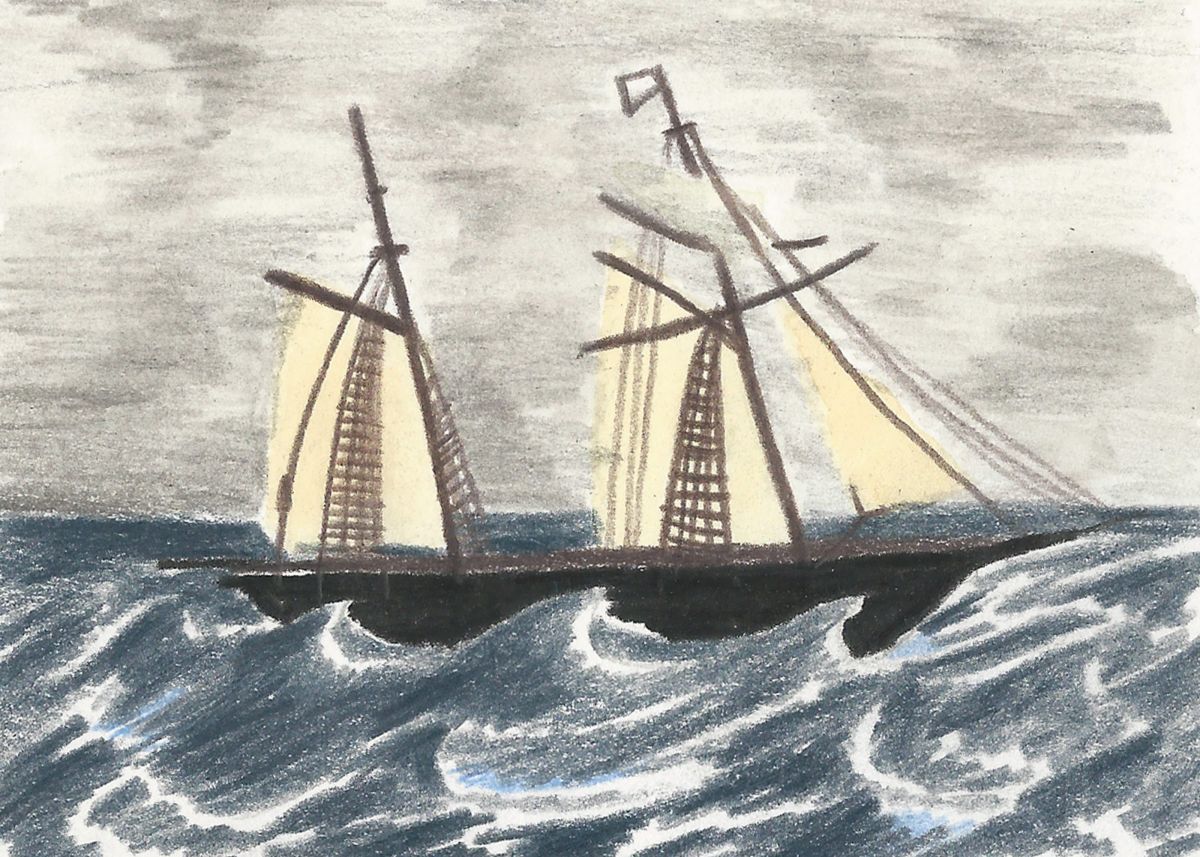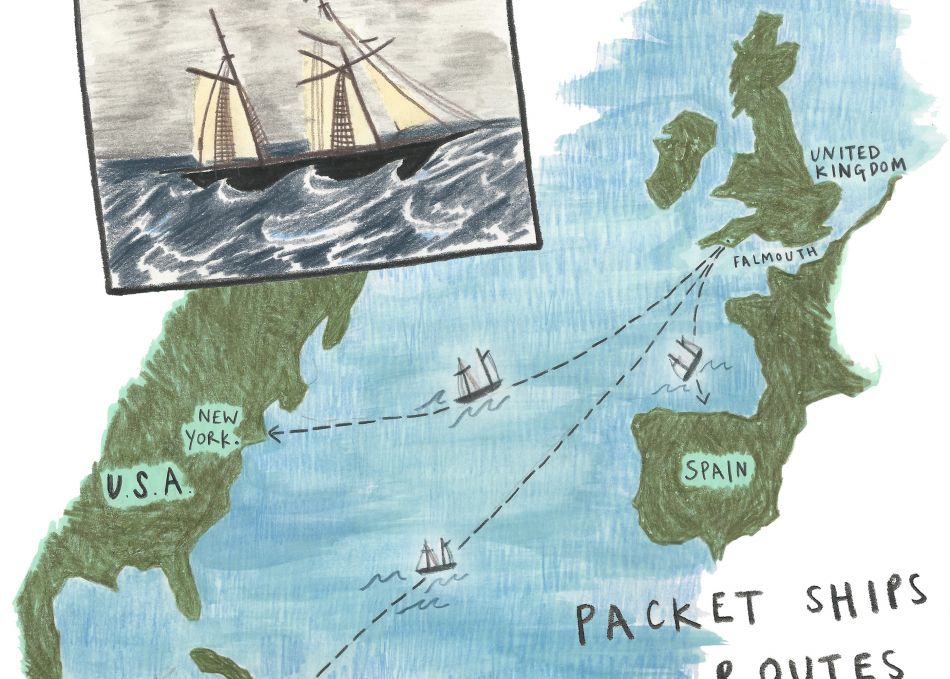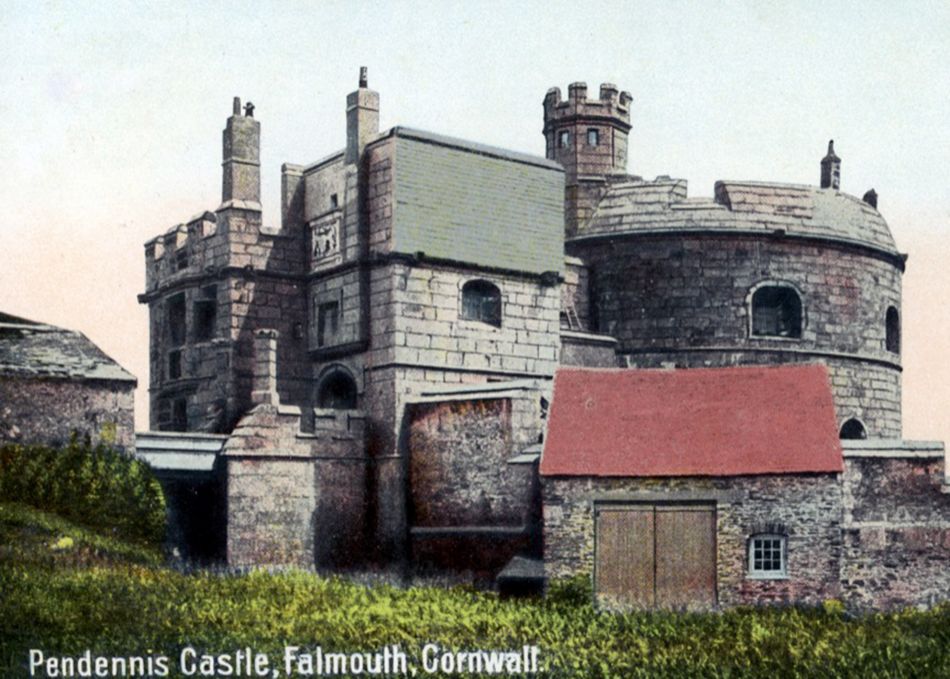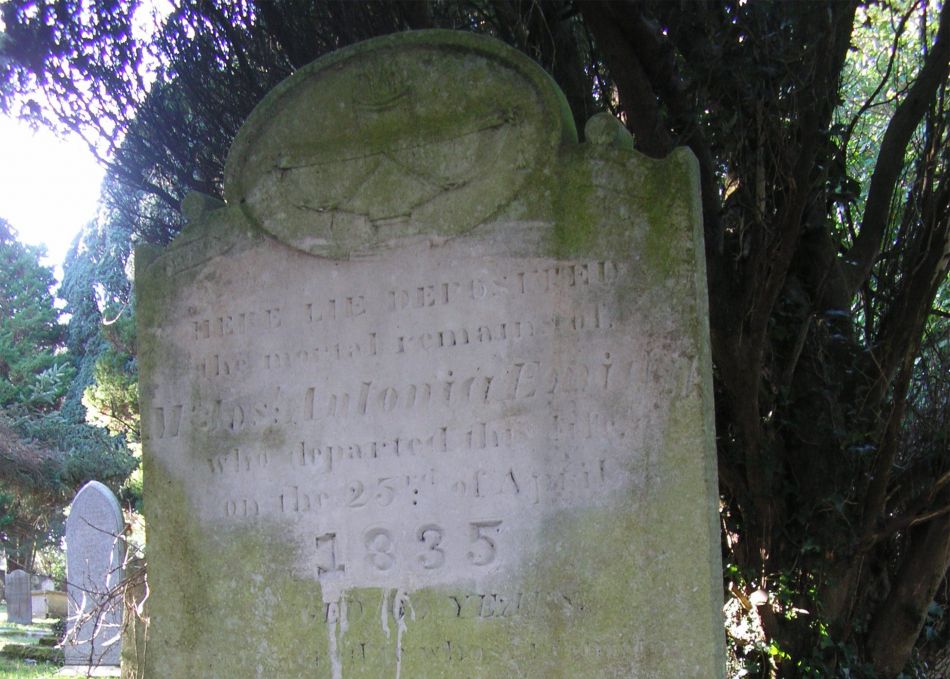1689
The Packet Service begins at Falmouth
In 1689, the General Post Office (an earlier version of the Royal Mail) created a new station for its overseas delivery service, the Packet Service.
Falmouth was a good choice for the Packet Service station because it had a deep harbour, meaning it could fit large ships. At first, the service only travelled on one route, from Cornwall to Spain. In 1705, ships began delivering mail to the West Indies. Later, at its busiest time, the service had 39 ships sailing.
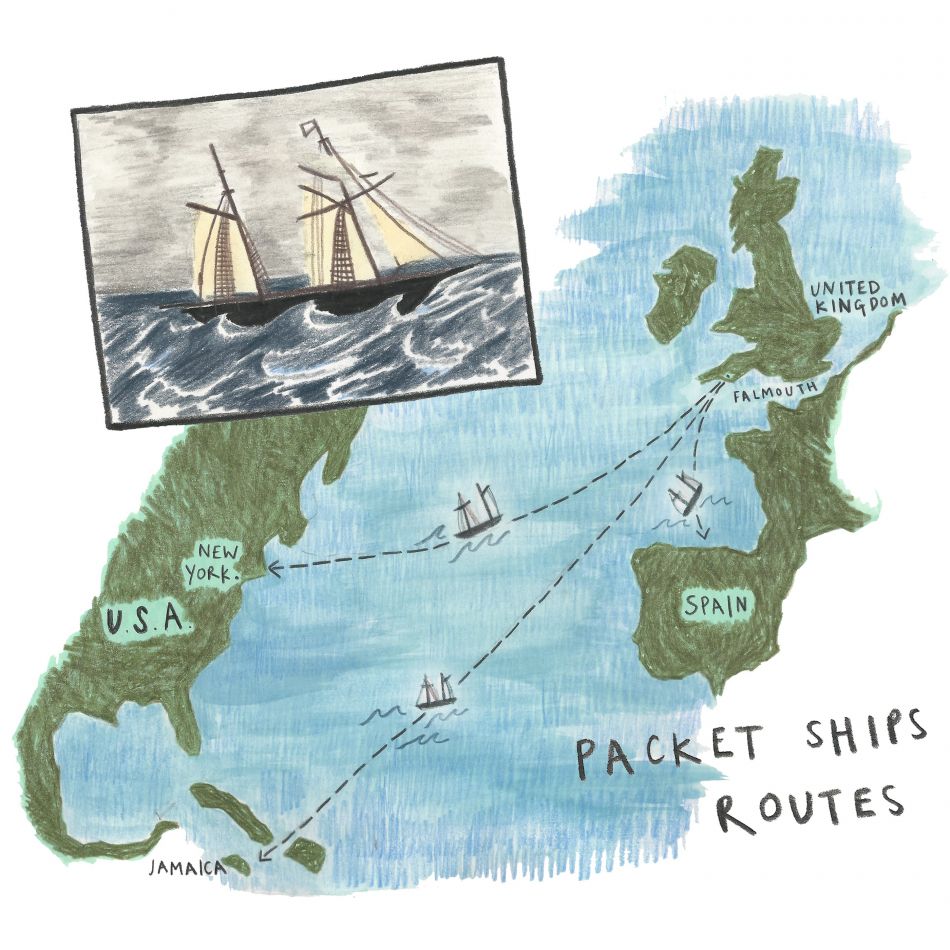
Illustration by Rachel Ackerman
1807
Travelling in the Napoleonic Wars
During the Napoleonic Wars between Britain and France, the packet ships kept working in dangerous conditions. Crews weren’t part of the Royal Navy but did fight if they had to. Packets carried cannons for their own protection, and often needed to use them. In 1807, the ship Windsor Castle successfully captured a French ship and brought it back to Falmouth. This happened many times, but some packets weren’t as lucky and several were damaged or destroyed.
...after having bravely defended herself against so superior a force, for a considerable time, the Packet ultimately succeeded in capturing the [ship], after having killed 21 and wounded 34 of the crew Letter from the General Post Office to the Admiralty, 1808

Illustration by Rachel Ackerman
Because normal passenger ships couldn’t sail during the wars, people travelling overseas had to go on the packet ships instead. The famous poet Lord Byron did this in 1809, when he sailed to Portugal. He found the experience very unpleasant and wrote a comedy poem about the noise, heat and seasickness he found on his trip.
1810
Smuggling scandal at Falmouth
The packet ships did important work during wartime, but their crews didn’t always obey the law. For many years, men on the ships had been taking items from Britain and selling them overseas in secret. They did the same on the journey home, bringing back things like lemons and figs. At the time, these would have been rare treats in Cornwall.
In October 1810, two ships were searched and found to have items hidden on board. When the crews refused to sail without them, a mutiny (rebellion) broke out. As punishment, the General Post Office took the Packet Service and all its ships away from Falmouth. This removed a good business from the town and cost it a great deal of money. When the service was moved back to Falmouth in February 1811, important local people wrote a note of thanks.

Illustration by Rachel Ackerman
1851
The service ends
From the 1820s onwards, the old packet sail ships (powered by wind) were replaced with new steam ships. Steam was a faster and more reliable form of transport because it didn’t rely on good weather conditions. Unfortunately, these ships also didn’t need to leave from Falmouth. Gradually, the service was moved away. In 1851, the last packet ship returned from its journey and the station was closed.
The last of the Falmouth Packets has sailed, and the Establishment which has existed there for nearly 200 years has, for the present, come to an end. The Royal Cornwall Gazette, 1850
This was a difficult time for the community. Many of the businesses in the town had been created to supply the ships and their passengers with food, equipment or entertainment. People wrote about the poverty they now saw.
In time, the town recovered and it is now a busy and lively place with its own university. Because of its deep harbour, Falmouth often welcomes large cruise ships bringing visitors from all over the world.



